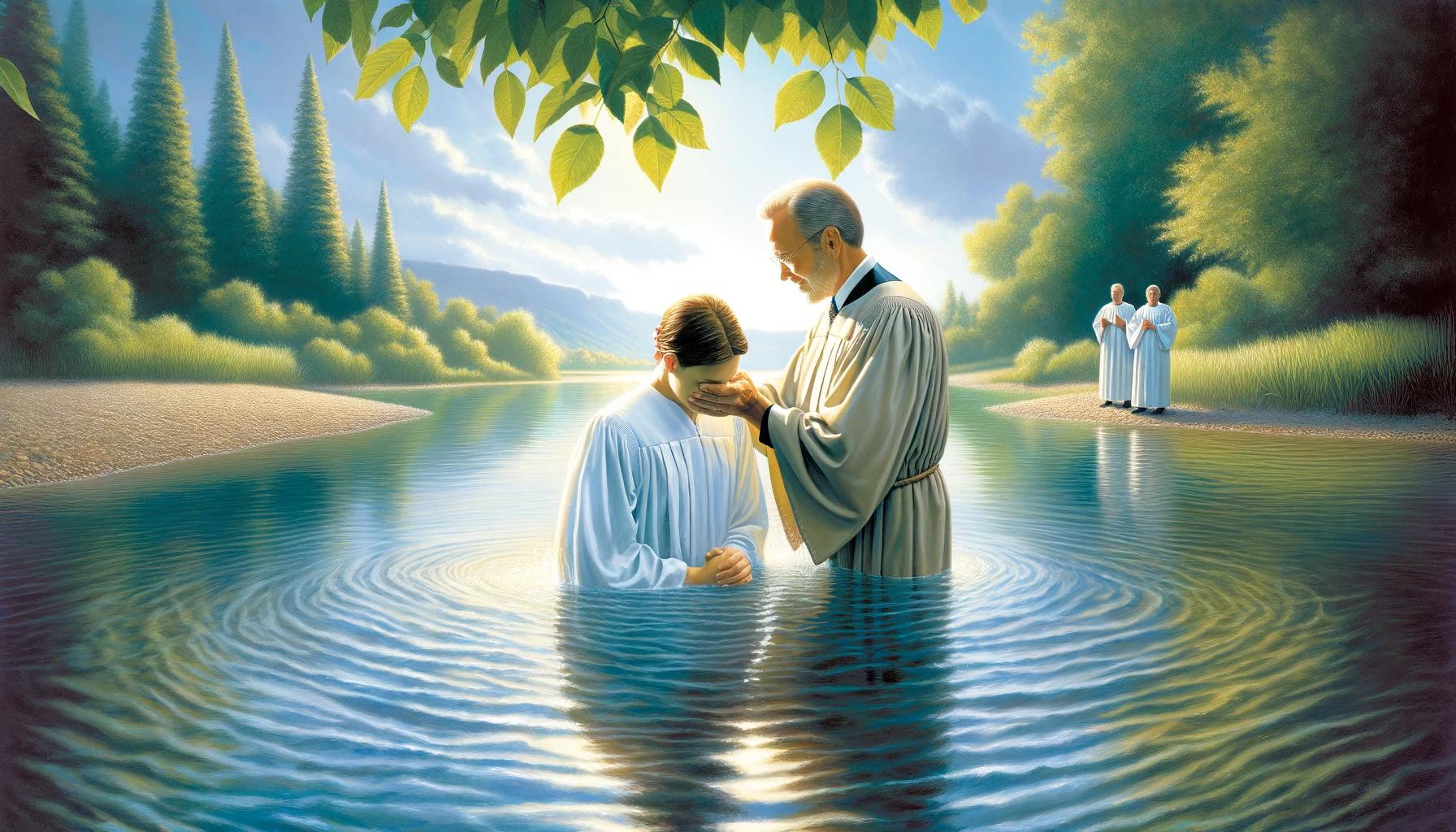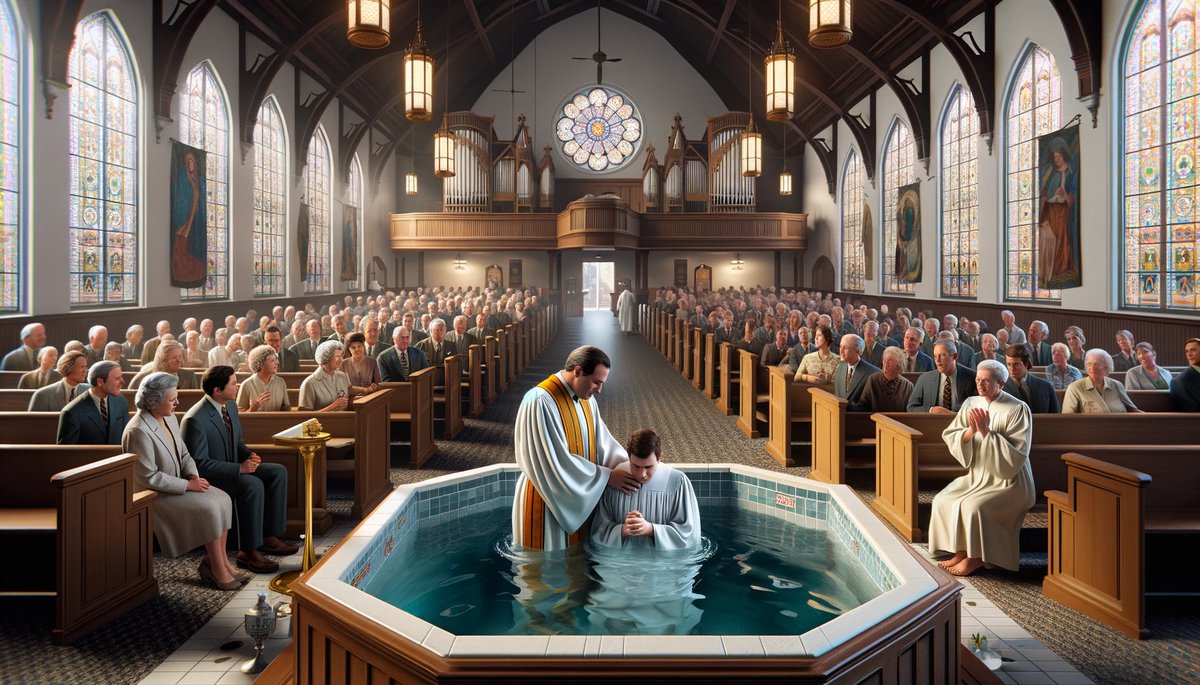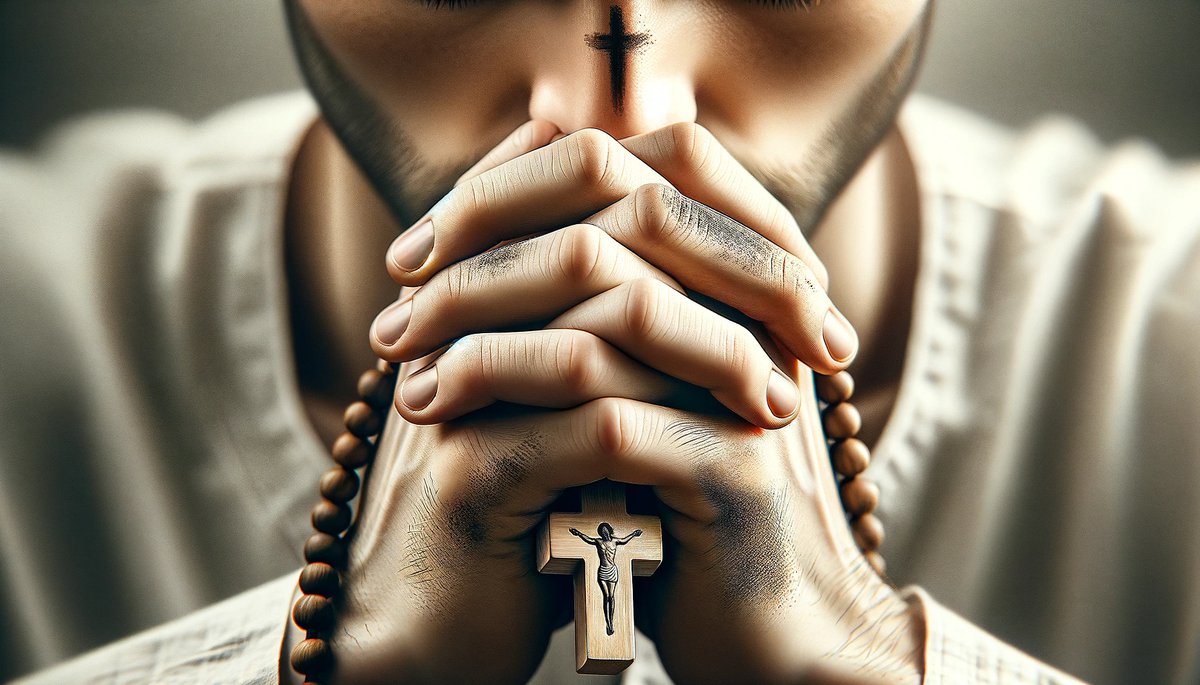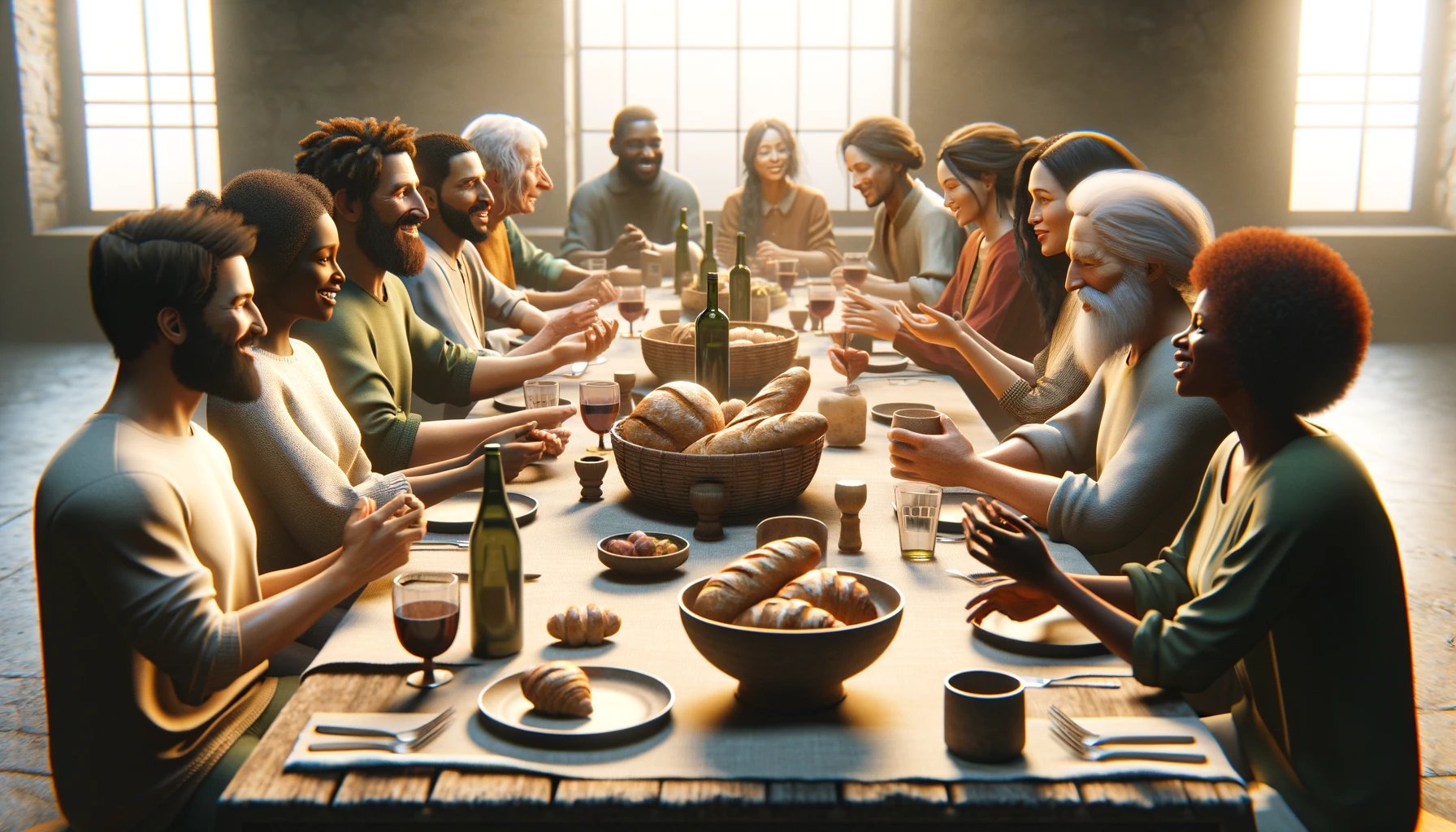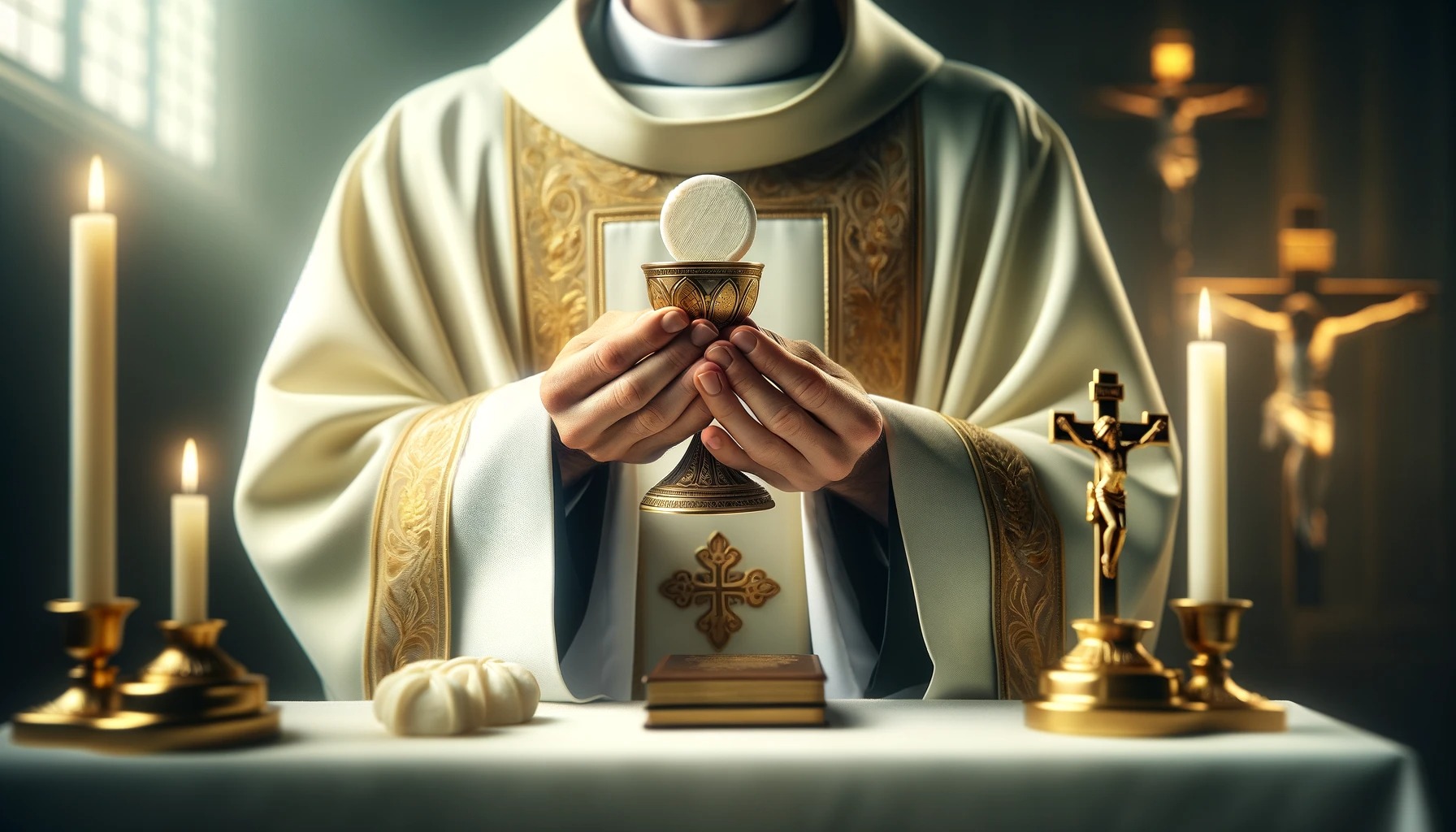Home>Theology and Spirituality>What Does The First In First Baptist Mean


Theology and Spirituality
What Does The First In First Baptist Mean
Published: February 21, 2024
Ericka Andersen, an editor at Christian.net, expertly merges digital strategy with content creation, focusing on faith and societal issues. Her communication skills enhance the platform's engaging narratives, fostering meaningful dialogue on belief's impact on society.
Discover the significance of "first" in First Baptist and its connection to theology and spirituality. Explore the rich history and meaning behind the name. Unlock the deeper understanding today!
(Many of the links in this article redirect to a specific reviewed product. Your purchase of these products through affiliate links helps to generate commission for Christian.net, at no extra cost. Learn more)
Table of Contents
Introduction
The name "First Baptist Church" is a common sight in many communities, often evoking a sense of tradition, history, and spiritual significance. But have you ever wondered what the "First" in "First Baptist" actually means? This seemingly straightforward term holds a wealth of historical, theological, and communal significance that goes beyond its ordinal connotation.
In this article, we will delve into the origins of the First Baptist Church, explore the deeper meaning behind the term "First," and examine the pivotal role that the First Baptist Church plays in the community. By unraveling the layers of history and spirituality intertwined with this name, we can gain a deeper appreciation for the enduring legacy and impact of the First Baptist Church.
So, let's embark on a journey to uncover the rich tapestry of meaning woven into the seemingly simple descriptor of "First" in the context of the Baptist faith.
Read more: What Does The First Communion Mean
History of the First Baptist Church
The history of the First Baptist Church traces back to the early 17th century, rooted in the religious landscape of colonial America. The establishment of the first Baptist congregation in America is attributed to Roger Williams, a prominent advocate of religious freedom and the separation of church and state. In 1638, Williams founded the First Baptist Church in Providence, Rhode Island, marking the beginning of a legacy that would shape the course of American religious history.
As the Baptist movement gained momentum, the concept of the "First Baptist Church" became emblematic of the pioneering spirit and foundational presence of Baptist congregations in various communities. The designation of "First" signified not only temporal precedence but also spiritual primacy, emphasizing the foundational role of these churches in propagating Baptist beliefs and practices.
The historical narrative of the First Baptist Church is intertwined with the broader tapestry of American religious development, reflecting the enduring commitment to individual liberty, congregational autonomy, and the priesthood of all believers. Over the centuries, First Baptist Churches have emerged as stalwart bastions of faith, resilience, and community engagement, embodying the enduring legacy of the Baptist tradition.
From the early gatherings in colonial meetinghouses to the present-day edifices that stand as testaments to unwavering faith, the history of the First Baptist Church is a testament to the resilience, adaptability, and enduring relevance of the Baptist faith in the ever-evolving American religious landscape.
The journey of the First Baptist Church is marked by pivotal moments of growth, challenge, and transformation, reflecting the dynamic interplay of faith, culture, and societal change. As these churches continue to evolve and adapt to contemporary contexts, their historical roots serve as a source of inspiration, guidance, and continuity, fostering a sense of connection to the rich tapestry of Baptist heritage.
In essence, the history of the First Baptist Church is a narrative of faith, fortitude, and fidelity, woven into the fabric of American religious history and serving as a testament to the enduring legacy of the Baptist tradition.
The Significance of "First" in the Name
The term "First" in the name "First Baptist Church" holds profound significance that transcends its ordinal meaning. At its core, the designation of "First" embodies a multifaceted symbolism that resonates deeply within the Baptist tradition and the broader religious landscape.
Historical Primacy and Pioneering Spirit
The use of "First" in the name of Baptist churches reflects their historical primacy and pioneering spirit within their respective communities. As early Baptist congregations took root in the American religious terrain, the descriptor "First" underscored their role as trailblazers, laying the foundation for the growth and dissemination of Baptist beliefs and practices. This historical primacy signifies not only temporal precedence but also spiritual leadership, emphasizing the foundational nature of these congregations within the broader religious tapestry.
Spiritual Primacy and Foundational Role
Beyond temporal precedence, the term "First" conveys a sense of spiritual primacy and foundational significance. It signifies the central role of the church as a spiritual anchor within the community, serving as a source of guidance, support, and communal cohesion. The "First Baptist Church" stands as a testament to the enduring legacy of Baptist faith, embodying the foundational principles of individual liberty, congregational autonomy, and the priesthood of all believers. This spiritual primacy underscores the pivotal role of these churches in nurturing and sustaining the Baptist tradition, fostering a sense of continuity and spiritual heritage.
Read more: What Does First Baptist Believe
Symbol of Enduring Legacy and Continuity
The designation of "First" also serves as a symbol of enduring legacy and continuity, linking the present-day congregation to the rich tapestry of Baptist history. It encapsulates a sense of connection to the pioneering efforts of early Baptist communities, fostering a profound appreciation for the enduring values, beliefs, and traditions that have been passed down through generations. The "First Baptist Church" stands as a living testament to the resilience, adaptability, and enduring relevance of the Baptist faith, embodying a legacy that transcends temporal boundaries and resonates across the annals of American religious history.
In essence, the significance of "First" in the name "First Baptist Church" encompasses historical primacy, spiritual leadership, and enduring legacy, encapsulating the foundational role of these congregations within the Baptist tradition and the broader religious landscape. This seemingly simple descriptor carries profound layers of meaning, reflecting the timeless values and enduring impact of the First Baptist Church within its community and beyond.
The Role of the First Baptist Church in the Community
The First Baptist Church plays a multifaceted and pivotal role in the community, serving as a beacon of hope, compassion, and support for individuals from all walks of life. At the heart of its community engagement lies a commitment to addressing the holistic needs of its members and extending a spirit of inclusivity, service, and outreach to the broader community.
Spiritual Nourishment and Guidance
Central to the role of the First Baptist Church is the provision of spiritual nourishment and guidance. Through worship services, pastoral care, and educational programs, the church offers a nurturing environment where individuals can deepen their faith, find solace in times of adversity, and seek spiritual counsel. The church serves as a spiritual anchor, fostering a sense of belonging and interconnectedness among its members while providing a sanctuary for spiritual growth and reflection.
Community Outreach and Support
Beyond its spiritual endeavors, the First Baptist Church actively engages in community outreach and support initiatives. From food drives and homeless shelters to counseling services and educational programs, the church extends a helping hand to those in need, embodying the spirit of compassion and solidarity. By addressing social and economic challenges, the church exemplifies its commitment to serving the broader community, fostering a culture of empathy, empowerment, and social responsibility.
Read more: What Does Baptist Mean In Religion
Fostering Unity and Fellowship
The First Baptist Church serves as a unifying force within the community, fostering a sense of fellowship, understanding, and collaboration. Through various events, gatherings, and collaborative endeavors, the church cultivates an inclusive environment where diverse voices are heard, and communal bonds are strengthened. By promoting unity amidst diversity, the church exemplifies the transformative power of solidarity and mutual respect, transcending barriers and nurturing a sense of collective purpose and belonging.
Advocacy and Social Justice
Embodying the Baptist tradition's legacy of social activism and advocacy, the First Baptist Church champions social justice causes and advocates for positive change within the community. Whether addressing issues of inequality, discrimination, or systemic challenges, the church stands as a vocal proponent of justice, equity, and human dignity. By amplifying marginalized voices and mobilizing for meaningful action, the church embodies its commitment to upholding the principles of justice, compassion, and equality.
In essence, the First Baptist Church serves as a cornerstone of community life, embodying the values of compassion, service, and inclusivity. Through its multifaceted endeavors, the church enriches the lives of individuals, fosters a sense of communal solidarity, and exemplifies the transformative potential of faith in action. As a steadfast presence in the community, the First Baptist Church continues to inspire, uplift, and empower individuals, embodying the enduring legacy of the Baptist tradition in its unwavering commitment to serving and uplifting the community.
Conclusion
In conclusion, the term "First" in the name "First Baptist Church" encapsulates a rich tapestry of historical, spiritual, and communal significance that transcends its ordinal connotation. From its historical roots in the early days of the Baptist movement to its enduring legacy as a beacon of faith and community engagement, the First Baptist Church embodies the timeless values of spiritual primacy, pioneering leadership, and inclusive service.
The history of the First Baptist Church intertwines with the broader narrative of American religious development, reflecting the enduring commitment to individual liberty, congregational autonomy, and the priesthood of all believers. As the first Baptist congregations took root in colonial America, the descriptor "First" underscored their role as trailblazers, laying the foundation for the growth and dissemination of Baptist beliefs and practices. This historical primacy signifies not only temporal precedence but also spiritual leadership, emphasizing the foundational nature of these congregations within the broader religious tapestry.
Moreover, the significance of "First" in the name "First Baptist Church" extends beyond historical precedence to encompass spiritual primacy and enduring legacy. It signifies the central role of the church as a spiritual anchor within the community, serving as a source of guidance, support, and communal cohesion. The "First Baptist Church" stands as a living testament to the resilience, adaptability, and enduring relevance of the Baptist faith, embodying a legacy that transcends temporal boundaries and resonates across the annals of American religious history.
In the community, the First Baptist Church plays a pivotal role, offering spiritual nourishment, community outreach, fostering unity, and advocating for social justice. Through its multifaceted endeavors, the church enriches the lives of individuals, fosters a sense of communal solidarity, and exemplifies the transformative potential of faith in action. As a steadfast presence in the community, the First Baptist Church continues to inspire, uplift, and empower individuals, embodying the enduring legacy of the Baptist tradition in its unwavering commitment to serving and uplifting the community.
In essence, the First Baptist Church stands as a testament to the enduring legacy and impact of the Baptist tradition, embodying the foundational principles of faith, resilience, and community engagement. The term "First" serves as a beacon of hope, compassion, and inclusivity, reflecting the unwavering commitment of these congregations to uphold the timeless values of faith, service, and solidarity. Through its historical significance, spiritual primacy, and communal engagement, the First Baptist Church continues to illuminate the path of faith, unity, and social responsibility, enriching the lives of individuals and communities while perpetuating the enduring legacy of the Baptist tradition.
